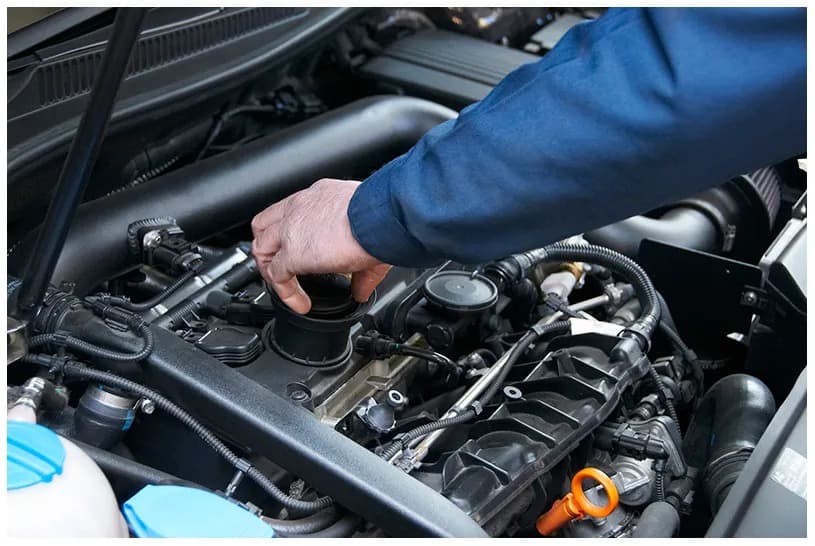Table of Contents
- Introduction
- What is Regular 30/60/90 Mile Car Maintenance?
- 30,000 miles – change your car’s oil and filter, rotate your tires, inspect your brakes
- 60,000 miles – change your car’s timing belt, spark plugs, and fluids
- 90,000 miles – change your car’s air filter and fuel filter
- Conclusion
- FAQs about 30/60/90 Mile Car Maintenance
Home » Regular 30/60/90 Mile Car Maintenance
Introduction
Don’t wait until your car breaks down to learn about basic car maintenance! By staying on top of regular 30/60/90 mile check-ups, you can avoid costly repairs and keep your car running smoothly. This blog post will teach you everything you need to know about 30/60/90-mile car maintenance. From oil changes to tire rotations, we’ve got you covered. So read on and stay informed about the best way to take care of your vehicle.
What is Regular 30/60/90 Mile Car Maintenance?
Regular 30,000/60,000/90,000-mile car maintenance is an essential preventive measure to keep cars running smoothly and avoid costly repairs. This type of maintenance involves regularly scheduled checkups and services that should happen every 30,000 miles, 60,000 miles, and 90,000 miles, respectively.
These checkups include oil changes to ensure the engine is well-lubricated and tire rotations to extend the life of the tires. Other inspections can be performed, such as replacing air filters or spark plugs.
30,000 miles – change your car’s oil and filter, rotate your tires, inspect your brakes

Passing the 30,000-mile mark is an important milestone for your car, so it’s essential to ensure that all essential maintenance services are taken care of. Make sure to change your oil and filter and rotate your tires, as these are two of the most basic tasks to keep your engine running smoothly.
In addition, inspecting your brakes should also be a priority – you want to ensure that they’re in solid shape so that you can stay safe on the road. Taking the time and effort to perform these routine services now can help to lead to more miles of hassle-free driving down the road.
60,000 miles – change your car’s timing belt, spark plugs, and fluids
Car owners must keep up with regular maintenance, especially regarding timing belts, spark plugs, and fluids.
These components should be taken care of every 60,000 miles to ensure that their car runs smoothly and safely. Changing the timing belt helps prevent costly engine repairs; the spark plugs are essential for proper combustion, and it’s important to ensure your car has fresh fluids for optimal performance.
A little bit of effort now could save you from big problems later on – so don’t wait any longer – make sure your car has its check-up at the 60,000-mile mark!
90,000 miles – change your car’s air filter and fuel filter

Keeping your car running smoothly is essential, especially if it has traveled 90,000 miles. One of the most crucial maintenance jobs to keep on top of is regularly changing your car’s air filter and fuel filter. Not only is this task relatively inexpensive and easy to do, but it also plays a vital role in ensuring that your car engine runs optimally and maintains its performance over the long haul – a must for anyone with a high-mileage vehicle! So be sure to look out for those warnings in your owner’s manual regarding when to replace your filters so you can keep your engine running smoothly regardless of whatever distance you put on the clock.
Conclusion
If you keep up with your car’s maintenance, it will last longer and run more efficiently. Depending on how many miles you drive in a year, you should change your oil every 3-6 months. Other parts of your car – like the timing belt, spark plugs, and fluids – may only need to be changed once every two years. Your car’s air filter and fuel filter can last up to 60,000 miles before they need to be replaced. By correctly maintaining your vehicle according to its mileage recommendations, you can avoid costly repairs down the road and extend the life of your car.
FAQs about 30/60/90 Mile Car Maintenance
What are the regular maintenance intervals for a car?
There are different regular maintenance intervals depending on your make and model, as well as how many miles you drive in a year. However, some tasks should be done at specific mile markers – like changing your oil and filter, your tires, and inspecting your brakes. It’s also essential to replace your car’s fuel filters every so often to keep it running smoothly. You can help avoid costly repairs down the road by keeping up with these tasks.
What are the consequences of not performing regular maintenance on a car?
Not performing regular maintenance on a car can have severe and long-term consequences. Without addressing routine maintenance tasks such as changing the oil, rotating the tires, inspecting the brakes, and replacing filters, owners can expect to experience decreased vehicle performance, substantially higher risks of breakdowns, and significant repair costs.
How can I tell if my car is due for maintenance?
The best way to tell if your car is due for maintenance is by referring to your owner’s manual and following the manufacturer’s recommended maintenance schedule. Your owner’s manual should provide specific information on when regular maintenance should take place, including oil changes, tire rotations, brake inspections, and filter replacements.
How do I find a reputable mechanic to perform car maintenance?
Get referrals from friends, family members, or colleagues who have used a mechanic. Ask them about their experience with the shop and whether they would recommend it. If possible, try to get referrals for more than one mechanic so that you can compare your options and make an informed decision.
What are some tips for performing car maintenance at home?
It is highly recommended that you use the correct tools for the job. If unsure what tools you need for a specific task, look up instructions online or contact your local auto parts store for advice. Many auto parts stores offer free checklists and instructions for basic maintenance tasks like changing spark plugs or replacing filters.

